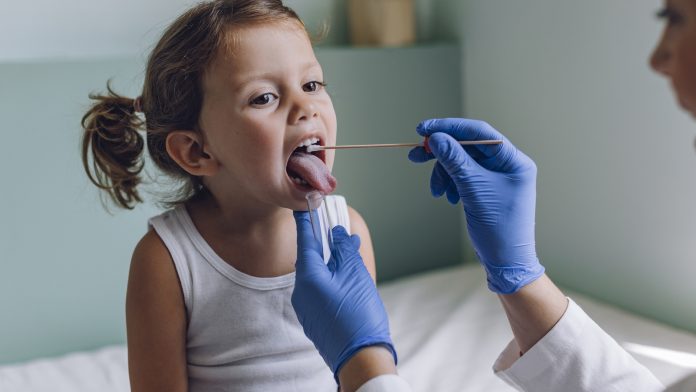
Researchers from University College London studied how symptoms of long Covid in children change over time.
The Children and young people with Long Covid (CLoCK) study, published in The Lancet Regional Health – Europe, is the world’s largest study on long Covid in Children. The researchers carried out an analysis of how symptoms change over time in children.
Covid causes respiratory symptoms that can feel like a cold or the flu, and these symptoms typically last a couple of weeks; however, when these symptoms do not disappear, this becomes long Covid. The most common symptoms of long Covid are extreme tiredness, shortness of breath, loss of smell and muscle aches.
Analysing how symptoms of long Covid in children change
The researchers asked children aged 11 to 17 about their health at six months and 12 months following PCR tests between September 2020 and March 2021. They were asked to recall their symptoms at the time of taking the test.
None of the children in the study were hospitalised at initial participation. The researchers collected data from 5,086 children, 2,909 of whom tested positive for Covid and 2,177 who tested negative. The children were given a list of 21 symptoms and validated scales to assess their quality of life, mental health, wellbeing, and fatigue.
The researchers found that, at the time of testing, health issues were more common in children and young people who had tested positive for the virus compared to those who tested negative, as well as six months and 12 months post-PCR test. Within the test positives, 10.9% reported fatigue at all three-time points, whilst in test negatives only 1.2% reported fatigue at all three-time points.
They also found that symptoms of long Covid in children changed over the year. The data showed that whilst some children’s symptoms disappeared, some children faced new symptoms. The researchers also found that the symptoms of long Covid in children and young people change over time, and healthcare professionals should be aware of this.
Corresponding author, Dr Snehal Pinto Pereira (UCL Surgery & Interventional Science) said: “Our research goes one step further than existing studies and indicates that researchers need to track individual trajectories using repeated measurement on the same children and young people over time.
“Simply reporting repeated cross-sectional prevalences – or snapshots – of symptoms over time may obscure important information about long Covid in young people that have clinical relevance.”
Limitations of the study include self-reported symptoms
The reported symptoms of long Covid in children are subject to recall bias as they were noted at the point of first contact with the CloCK study (at either three months or six months post-test). However, the six and 12-month symptoms of long Covid in children were reported at the time they were experienced.
A further limitation was that the original PCR tests were taken before the Delta and Omicron variants became dominant, so the findings may not reflect the long-term effects of these variants. The children and young people also self-reported their symptoms; some symptoms, such as shortness of breath would have been better assessed by a medical professional.
The researchers also removed data from children who tested positive after the initial PCR test from the analysis.








